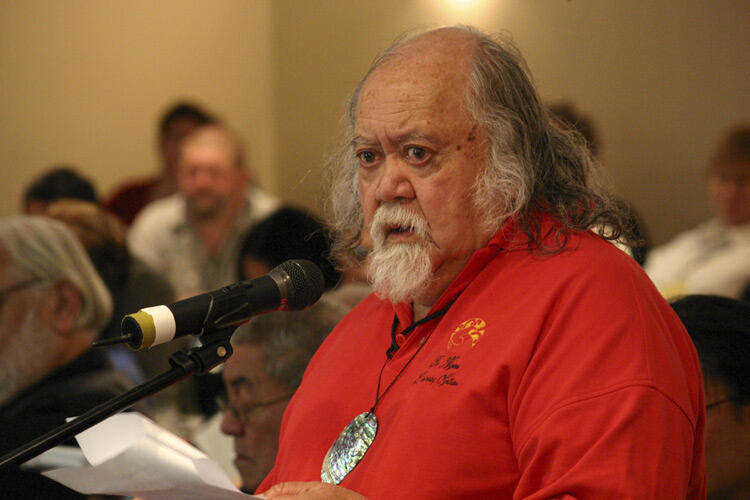
Ngati Porou scholar and Anglican theologian, the Rev Eru Potaka-Dewes, has died in Rotorua.
Maori Party co-leader Dr Pita Sharples said Mr Potaka-Dewes would be sorely missed.
"Whenever he rose to his feet he would make an enduring impression on the issue of the day – whether it be foreshore and seabed; Treaty claims or any of the vast areas of Maori political debate that he loved to contribute to," Dr Sharples said.
Mr Potaka-Dewes declared he was "true blood Ngati Porou" but also had links to Ngati Uepohatu and Te Whanau-o-Pokai.
Dr Sharples' co-leader, Tariana Turia, said: "Eru was widely read and loved nothing better than a vibrant debate on history, Treaty of Waitangi claims, education and rangatiratanga.
"He has been a passionate commentator and scholar in the field of theological issues, particularly indigenous theology," she said. In recent years Mr Potaka Dewes wrote hundreds of letters to newspapers defending Maori rights.
"Eru understood the power of the pen and he would apply it particularly in cases to defend Maori rights or bring a new and refreshing perspective to a debate," said Waiariki MP Te Ururoa Flavell.
Eru was Dean of Theology at the Maori Anglican Theological College in Rotorua, part-time teacher at Te Kura Kaupapa Maori o Ruamata, and life member of the Maori Nurses Council.
He was also widely known as an actor having appeared as Old Gobbo in the Maori Merchant of Venice as well as appearances in films: The Rainbow Warrior; Rapa Nui, The Piano; Jubilee and a leading role in the Maori language drama Tohunga.
In 1987 Mr Potaka-Dewes was named in Parliament by then Hobson MP Ross Meurant as a radical activist, something he believed led to his Titirangi home later being raided by police on the eve of Auckland's 1990 Commonwealth Games. Unfortunately, they were too late: he had already left for work – as official Anglican chaplain in the Games Village.
In 1991 he established the Aotearoa-NZ Action Committee's Alternative Immigration Office (ANZAC) to act as a Maori "immigration centre" for the "solidarity of indigenous peoples".
ANZAC issued its own "passports" but the government of the day objected and reportedly told the Solomon Islands it would lose education aid if it continued to accept the passports.
Mr Potaka-Dewes was fined for refusing to fill out his census form in 1991, and was again charged in 1996 when he repeated the stand because he wanted "Aotearoa" used as well as "New Zealand" on the census form. He pleaded guilty and escaped without penalty.
Mr Potaka-Dewes is survived by his wife, Kiri, his children and mokopuna.

















Comments
Log in or create a user account to comment.